Biology
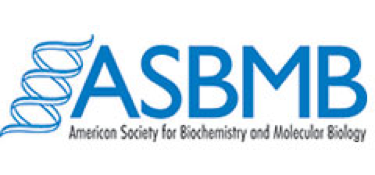
American Society for Biochemistry and Molecular Biology
The American Society for Biochemistry and Molecular Biology (ASBMB) is a non-profit scientific and educational organization with over 12,000 members. Founded in 1906, the Society is based in Rockville, Maryland. The Society’s purpose is to advance the science of biochemistry and molecular biology through publication of scientific and educational journals: The Journal of Biological Chemistry, Molecular & Cellular Proteomics, and the Journal of Lipid Research, organization of scientific meetings, advocacy for funding of basic research and education, support of scientific education at all levels, and promoting the diversity of individuals entering the scientific workforce.
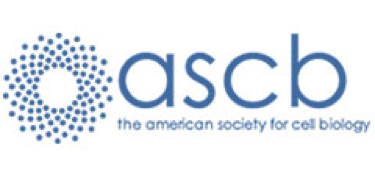
American Society for Cell Biology
The American Society for Cell Biology is an inclusive, international community of biologists studying the cell, the fundamental unit of life. They are dedicated to advancing scientific discovery, advocating sound research policies, improving education, promoting professional development, and increasing diversity in the scientific workforce.

American Society of Andrology
The American Society of Andrology (ASA) is a unique partnership of scientists and clinicians. Founded in 1975, the Society has over 600 members from all over the world whose specialty fields include male reproduction, endocrinology, urology, anatomy, gynecology/obstetrics, biochemistry, animal science, molecular & cell biology, and reproductive technologies. The Society, which fosters a multi-disciplinary approach to the study of male reproduction, exists to promote scientific interchange and knowledge of the male reproductive system.

American Society of Clinical Oncology
ASCO was founded in 1964 by a small group of physician members of the American Association of Cancer Research (AACR) who recognized the need for the creation of a separate society dedicated to issues unique to clinical oncology. ASCO promotes and provides for lifelong learning for oncology professionals; cancer research; an improved environment for oncology practice; access to quality cancer care; a global network of oncology expertise; and educated and informed patients with cancer. ASCO is supported by its affiliate organization, the Conquer Cancer Foundation, which funds ground-breaking research and programs that make a tangible difference in the lives of people with cancer.

Endocrine Society
Founded in 1916, the Endocrine Society is the world’s oldest, largest, and most active organization devoted to research on hormones and the clinical practice of endocrinology. The Society works to foster a greater understanding of endocrinology among the general public and practitioners of complementary medical disciplines, and to promote the interests of all endocrinologists at the international and national scientific research and health policy levels of government.
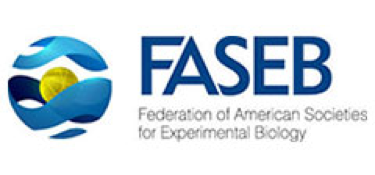
Federation of American Societies for Experimental Biology
Founded in 1912, the Federation of American Societies for Experimental Biology (FASEB) was originally created by three independent scientific organizations to provide a forum in which to hold educational meetings, develop publications, and disseminate biological research results. What started as a small group of dedicated scientists has grown to be the nation’s largest coalition of biomedical researchers, representing 27 scientific societies and over 125,000 researchers from around the world. FASEB is now recognized as the policy voice of biological and biomedical researchers.

Society for Developmental Biology
The Society for Developmental Biology is a non-profit professional society dedicated to advancement of the field of developmental biology. Over recent decades, the SDB has grown from a few hundred members to nearly 2,000 and has evolved to provide an international forum for research, education and career development in developmental biology.
Cancer

American Association for Cancer Research
The American Association for Cancer Research is the oldest and largest scientific organization in the world focused on every aspect of high-quality, innovative cancer research. Its reputation for scientific breadth and excellence attract the premier researchers in the field. The programs and services of the AACR foster the exchange of knowledge and new ideas among scientists dedicated to cancer research, provide training opportunities for the next generation of cancer researchers, and increase public understanding of cancer.
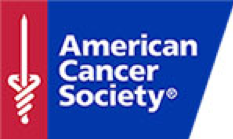
American Cancer Society
The American Cancer Society is a nationwide, community-based voluntary health organization dedicated to eliminating cancer as a major health problem. Headquartered in Atlanta, Georgia, the ACS has regional and local offices throughout the country that support 11 geographical Divisions and ensure we have a presence in every community. Together with our millions of supporters, the American Cancer Society (ACS) saves lives by helping people stay well and get well, by finding cures, and by fighting back.

Prostate Cancer Biorepository Network (PCBN)
The Prostate Cancer Biorepository Network (PCBN) is a Department of Defense (DoD)/Congressionally Directed Medical Research Program (CDMRP) bioresource that provides tissue and other biospecimens to all prostate cancer investigators.

Prostate Cancer Foundation
The Prostate Cancer Foundation (PCF) is the world’s leading philanthropic organization funding and accelerating prostate cancer research. Founded in 1993, PCF has raised more than $615 million and provided funding to more than 2,000 research programs at nearly 200 cancer centers and universities. The PCF global research enterprise now extends to 19 countries. PCF advocates for greater awareness of prostate cancer and more efficient investment of governmental research funds for transformational cancer research. Its efforts have helped produce a 20-fold increase in government funding for prostate cancer.
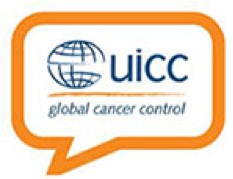
Union for International Cancer Control
Union for International Cancer Control (UICC) is a membership organization that exists to help the global health community accelerate the fight against cancer. Founded in 1933 and based in Geneva, UICC’s growing membership of over 900 organizations across 155 countries, features the world’s major cancer societies, ministries of health, research institutes and patient groups. Together with its members, key partners, the World Health Organization, World Economic Forum and others, UICC is tackling the growing cancer crisis on a global scale.
Fertility/Reproduction

American Society for Reproductive Medicine
The American Society for Reproductive Medicine was founded by a small group of fertility experts who met in Chicago in 1944. Distinguished members of ASRM have led the development of the field of reproductive medicine. They were the first physicians to perform many of the standard procedures used by fertility specialists today, including donor insemination and in vitro fertilization; they have developed new approaches to contraception and ovulation induction that are still in use; and they have helped form key legislation and fought for reproductive rights when public policy in reproductive matters did not exist.

International Society for Sexual Medicine
The International Society for Sexual Medicine (ISSM, formerly known as ISIR/ISSIR) was established in 1978 for the purpose of promoting research and exchange of knowledge for the clinical entity “impotence” throughout the international scientific community. The principal orientation of ISSM was initially towards basic science of erection, defects in the erectile mechanism, and the clinical aspects of diagnosis and treatment of erectile dysfunction. The orientation is now towards the whole field of human sexuality.

Kinsey Institute for Research on Sex, Gender and Reproduction
The Kinsey Institute at Indiana University works towards advancing sexual health and knowledge worldwide. For over 60 years, the institute has been a trusted source for investigating and informing the world about critical issues in sex, gender and reproduction.

Society for Reproduction and Fertility
The Society for Reproduction and Fertility (SRF) was established to promote research in reproduction and to disseminate information to the public at large. The Society was formed in July 2001 through amalgamation of the Society for the Study of Fertility (SSF) and the Journals of Reproduction and Fertility Ltd (JRF). The SRF carries forward the long-standing heritage of the SSF/JRF in being one of the principal scientific societies specializing in reproductive biology, both within the UK and internationally.
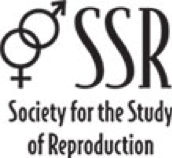
Society for the Study of Reproduction
The Society for the Study of Reproduction (SSR) was founded in 1967 to promote the study of reproduction by fostering interdisciplinary communication among scientists, holding conferences, and publishing meritorious studies. Today, our members come from 50 countries around the world.
Health Organizations

Centers for Disease Control and Prevention
The Centers for Disease Control and Prevention works 24/7 to protect America from health, safety and security threats, both foreign and in the U.S. Whether diseases start at home or abroad, are chronic or acute, curable or preventable, human error or deliberate attack, CDC fights disease and supports communities and citizens to do the same. CDC increases the health security of our nation. As the nation’s health protection agency, CDC saves lives and protects people from health threats.

National Institutes of Health
The National Institutes of Health (NIH). NIH is one of the world’s foremost medical research centers. An agency of the U.S. Department of Health and Human Services, the NIH is the Federal focal point for health and medical research. The NIH website offers health information for the public, scientists, researchers, medical professionals, patients, educators, and students. The Site has extensive information on funding and training opportunities, clinical trials, health news and links to the many Institutes and Centers that make-up the NIH.

World Health Organization
The World Health Organization’s priority in the area of health systems is moving towards universal health coverage. WHO works together with policy-makers, global health partners, civil society, academia and the private sector to support countries to develop, implement and monitor solid national health plans. In addition, WHO supports countries to assure the availability of equitable integrated people-centred health services at an affordable price; facilitate access to affordable, safe and effective health technologies; and to strengthen health information systems and evidence-based policy-making.
Kidneys/Bladder

National Institute of Diabetes and Digestive and Kidney Diseases
The National Institute of Diabetes and Digestive and Kidney Diseases (NIDDK) conducts, supports, and coordinates research on many of the most serious diseases affecting public health. The Institute supports clinical research on the diseases of internal medicine and related subspecialty fields, as well as many basic science disciplines.

National Kidney Foundation
The National Kidney Foundation is the leading organization in the U.S. dedicated to the awareness, prevention and treatment of kidney disease for hundreds of thousands of healthcare professionals, millions of patients and their families, and tens of millions of Americans at risk.
Pediatrics

European Society for Pediatric Urology
The European Society for Paediatric Urology is a non-profit society whose main purpose is to promote paediatric urology, appropriate practice, education as well as exchanges between practitioners involved in the treatment of genitourinary disorders in children.
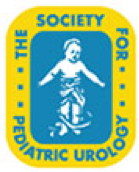
Society for Pediatric Urology
The Society for Pediatric Urology is a non-profit society whose main purpose is to promote pediatric urology, appropriate practice, education as well as exchanges between practitioners involved in the treatment of genito urinary disorders in children.
Urology
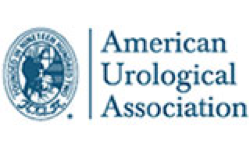
American Urological Association
Founded in 1902, the American Urological Association is a premier urologic association, providing invaluable support to the urologic community. Our mission is to promote the highest standards of urological clinical care through education, research and the formulation of health care policy.

British Andrology Society
The British Andrology Society is multi-disciplinary and draws its membership from a broad range of backgrounds encompassing a wide range of scientific disciplines including Reproductive Biology, Endocrinology, Cytology, Microbiology and Embryology alongside clinical and laboratory Andrology and other associated fields such as clinical Urology, Gynaecology, and Veterinary Medicine. As a registered charity, research and education are key to our existence with areas of interest including: spermatogenesis; semen analyses; sperm function; fertilisation; contraception; cryopreservation (sperm / fertility preservation) and improving outcomes of fertility treatment.

Urology News
The Urology News website, is an invaluable resource for consultant and trainee urologists, academic urologists, urological nurses and continence advisors.
